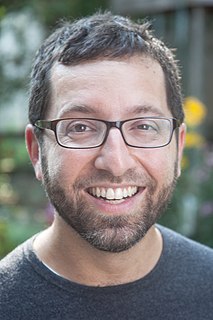A Quote by Megyn Kelly
I send my kids to school not only to learn how to read and write and do math, but also to develop socially.
Related Quotes
I see it as this: I send my kids to school not only to learn how to read and write and do math, but also to develop socially. So if there's a negative interaction between my child and another child, what I want to know is, how was it handled, what lessons came out of it, and, of course, is my child okay?
All parents want to send their children to the best possible schools. But because a good school is a relative concept, a family cannot achieve its goal unless it outbids similar families for a house in a neighborhood served by such a school. Failure to do so often means having to send your kids to a school with metal detectors at the front entrance and students who score in the 20th percentile in reading and math. Most families will do everything possible to avoid having to send their kids to a school like that. But because of the logic of musical chairs, they're inevitably frustrated.
Music is such an incredible tool for kids in general. They learn discipline; they learn how to express themselves. You learn math. You learn language. It's the ideal teaching tool, and that's why it's mind-boggling when any school superintendent decides that music is something we can kind of do without.
Preschool kids learn best when exploring, but kids in school learn best when they do things, interacting with a master. Unfortunately, our schools don't do much of either. Also, kids do need to learn how to deal with technology, and online education and otherwise using electronic devices as learning tools facilitates that.
When you learn to read and write, it opens up opportunities for you to learn so many other things. When you learn to read, you can then read to learn. And it's the same thing with coding. If you learn to code, you can code to learn. Now some of the things you can learn are sort of obvious. You learn more about how computers work.
Even my colleagues don't read classic criticism. And my feeling is that if you don't do that then you're not really practicing your craft. That's how you learn how to do it. You don't learn how to write about jazz just from listening to jazz. You learn how to write by reading the great writers and how they worked, the great music critics.
I didn't want to teach my kid how to read, so I used to read to him at night and close the book at the most interesting part. He said, “What happened then, daddy?” I said, “If you learn to read, you can find out. I'm too tired to read. I'll read to you tomorrow.” So, he had a need to want to learn how to read. Don't teach children how to read. Don't teach them mathematics. Give them a reason to want it. In school, they're working ass-backwards.
Good description is a learned skill, one of the prime reasons why you cannot succeed unless you read a lot and write a lot. It’s not just a question of how-to, you see; it’s also a question of how much to. Reading will help you answer how much, and only reams of writing will help you with the how. You can learn only by doing.
































